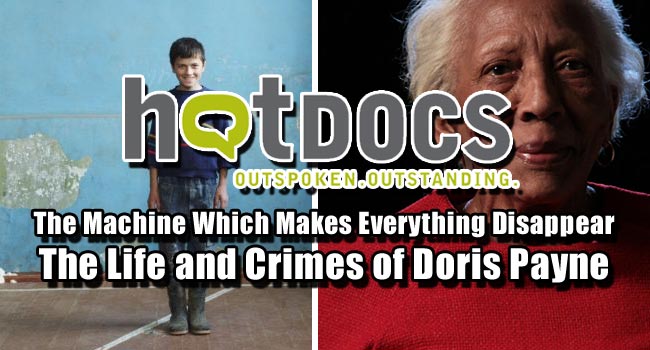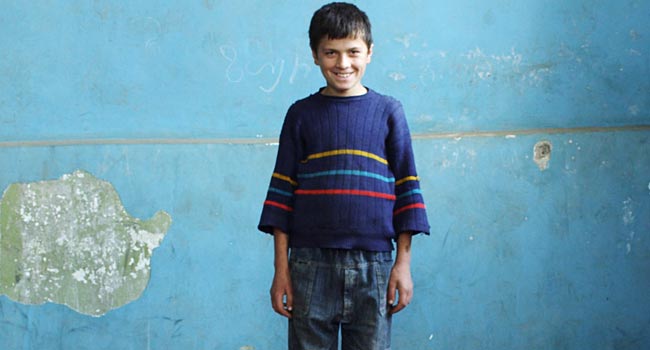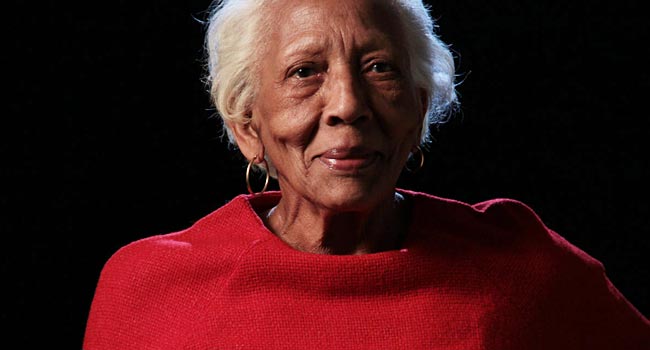2013 Hot Docs: The Machine Which Makes Everything Disappear & The Life and Crimes of Doris Payne

My first day of Hot Docs was a surprising one, the biggest surprise being how popular the festival is. Having not been to Hot Docs before, I wasn’t sure if people would be flocking to a film festival that was dedicated entirely to documentaries that mostly dealt with serious subject matter. I was quickly proven wrong though, as almost every screening I went to was completely full. I was glad to see so many people having enough of an interest in documentaries that they’d come out and catch something they otherwise wouldn’t see in a major theatre.
The unfortunate surprise for me was missing out on a few titles that I wanted to see badly. Mercy Mercy: A Portrait of a True Adoption was too busy for me to get into, and I’ll shamefully admit that exhaustion got the best of me during my last screening of the day so I couldn’t finish the film. Other than that, I had a great first day at Hot Docs. Here are my thoughts on two films I managed to catch.
The Machine Which Makes Everything Disappear

First thing’s first; I liked this documentary, but when I think back to it I get frustrated more than anything. Director Tinatin Gurchiani explains her film’s concept at the beginning: She held a casting call throughout Georgia (the country, not the state) for young people to audition for her film. Gurchiani cuts between the audition process and the day-to-day lives of some of the people she interviews.
Individually some of these segments can easily work on their own as a short film, but shown together they feel like a brief snapshot into the lives of Georgia’s young generation. The auditions are awkward to watch at times, with each participant standing still while Gurchiani needles them with questions about their personal lives (the title comes from when the director asks someone what they would “disappear” if they owned such a machine). These interviews, as unnatural as they look, end up bringing out the most honest moments as people begin to show how pessimistic they feel about their own lives.
When Gurchiani actually follows these people around with her camera the cynical qualities that come out from the auditions don’t show as much. One sequence, involving a 25 year old who runs a village where the average age is 70, could work on its own as a short comedy film. By watching these people simply exist in their daily lives the strength of human spirit on display prevails over the depressing moments that come out in the auditions.
Gurchiani, who amazingly shot this over 20 days on only a five figure budget, has a terrific eye for compositions. The only issue is that some segments simply aren’t interesting to watch. I think that, if the shooting schedule wasn’t so short, there might have been more time to find some stories worth pursuing. Still, Gurchiani captures some amazing moments, the highlight being a young woman’s reunion with her estranged mother. My feelings of frustration come from the fact that, if The Machine Which Makes Everything Disappear wasn’t so hit or miss in its structure, it could have been something truly great. It’s still a good, fascinating snapshot of modern-day Georgia, but it requires getting through some dull parts to get to the truly great moments.
RATING: 7.3
The Life and Crimes of Doris Payne

This is a documentary which, while it’s not as thoughtful or impacting as The Machine Which Makes Everything Disappear, does a very good job at what it sets out to do. Doris Payne, an 80 year old African American from West Virginia, has spent the last several decades stealing jewels around the world. Directors Matthew Pond and Kirk Marcolina began filming her when things took a surprising turn. Payne, now living in California, was charged with stealing a diamond from a store and faced up to 5 years in prison. She pleads not guilty, claiming that she was only considered a suspect because of her notoriety.
The Life and Crimes of Doris Payne cuts between the trial and various people, including Payne, explaining Doris’ life story. Doris turns out to have a very complex history, with her life in crime starting as a result of racial discrimination and a need to survive. When she was a kid Doris was kicked out of a store because of her skin colour, and as an act of rebellion she took the piece of jewelry she was trying on with her. From then on she kept stealing, partially out of spite for being discriminated but mostly as a way to survive (her father was abusive, and Doris says she stole to help support her mother financially so they could leave on their own).
The stories Doris tells about her travels are the documentary’s best moments. Hearing Doris describe how she stole a multi-million dollar diamond from Monte Cristo or made a daring escape in Switzerland are as entertaining as any Hollywood crime movie. Pond and Marcolina may have made a documentary that feels pretty lightweight (it breezes by at 72 minutes), but they were lucky enough to find a subject as interesting as Doris. As nice as she may seem, the film always puts in reminders that deep down she’s an incredibly manipulative person (at one point she ropes the directors into one of her schemes, and watching her get called out on it shows just how good she is at lying).
It may be a pretty conventional documentary in its structure and presentation, but it’s hard to come away from The Life and Crimes of Doris Payne without finding something to like. It’s a definite crowd-pleaser that benefits from a truly unique subject.
RATING: 7
Stay tuned to Way Too Indie for an interview with Doris Payne directors Matthew Pond and Kirk Marcolina, along with reviews of Entangled, Valentine Road and After Tiller
